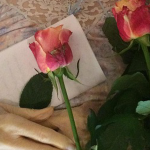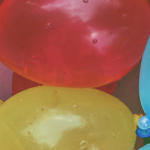A strange sound woke me around two in the morning. I lay listening for a while. A human cry, forming unintelligible words, repeating them after a pause and getting louder. I slipped out of bed and went into the living room. Padded across the cool tiled floor to the open window, lifted the blinds and looked out. It was one of those deeply still, unbearably hot nights in Singapore that nobody gets used to. No breeze, sporadic traffic, frogs burping in the grass below the block. The only thing out of place was the man’s voice that woke me, speaking – I guessed – in Mandarin or perhaps dialect. Plaintive and pleading. I think he was saying “Let me in.” I imagined him beside the doorway of another apartment on another level. Not so close to be an immediate neighbor, but near enough that listening to him felt intimate. Alongside his voice was another sound, the occasional loud clink of glass bottles bashing together. His words were slurred from hours of drinking. Seeing nothing out of the window, I stepped back into the center of the living room and stood in my boxers, listening. The block’s corridor fluorescents shined through the blinds, bathing me in film noir-like strips of darkness and light. I couldn’t move. Transfixed by each and every “Let me in”, as if this were a tape-loop for an avant-garde music composition. “Let me in”. Soon each repeated utterance was accompanied by the clang of glass on metal, impacting the steel gate that protected the door to which the man craved access. And on it went, relentlessly, growing in volume and intensity – solidifying into the menacing sound of pure male hate. Finally, the rhythm was broken. The door had opened quietly while the external gate was still locked. A woman’s voice had cut him off. “Go away”, I guessed she was saying, “please leave us alone, you’re waking the whole block. Go away.” But her utterance only gave the man hope, and his monologue began, a torrent of wretched justifications and emotional manipulations. Or so it sounded. Only now, writing this, do I make the link with this scene and myself at age ten or eleven in my bed, but not asleep, listening to my parents fighting downstairs, unable to make out exactly what they were saying, except the refrain my father kept returning to: “I’m sorry”, he would say to my mother over and over, “I’m sorry, but…”.
“No!”, the woman said when the man finished his soliloquy. “I want you to leave. I will not let you in. I will never let you in.” Or so I thought. And then he was sobbing. I wondered where this was happening. Two or three storeys below maybe, sounds rising in the night like the heat. In seconds his sadness became anger and he was screaming. The dull clunk of the door as it shut. A pause in the night. Then “Let me in” – a machine cranking up. He could go on all night. The bottle clanged once more against the gate, and then shattered. I imagined him slumped on the floor, indifferent to the glass shards around – a large, exhausted man. There were probably children in the flat. Not sleeping, like me.
The woman was right: the whole block was awake, I could feel everyone listening in the dark. I’d had enough. I took the landline from a side-table, sat cross-legged on our cool tiles and phoned the police. I stated the situation and address in a whisper, as if afraid the man could hear me. The lady on the line told me the patrol was on its way. They already knew. Minutes later, I heard the ding of a lift arriving and sober voices approaching. The man shouted at them, I’m sure he said it’s private and they should leave him the fuck alone. But then he gave up. I moved to the window at back of our kitchen so I could see the police car parked on the other side. Lights flashed silently. At last, I got a glimpse of him, or rather his back and head, eleven storeys below. They pushed him, with care, into the car, and he was driven away.
It was past three and still as hot as hell and the frogs began to burp again. I went back to the bedroom. Marianne had slept through it all. I climbed into bed and the air con turned my sweat into cold water.
…
Biography
Ben Slater’s writings on film have been published internationally, including the book Kinda Hot (Marshall Cavendish: 2006). He’s a script editor and has written the feature films Camera (2014) and Malam (2020). Ben teaches at Nanyang Technological University in Singapore and is writing a creative non-fiction book called LOST FILMS.
Image: unsplash.com





